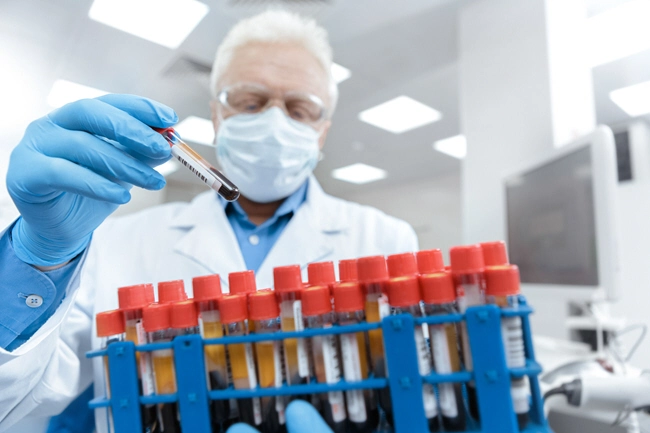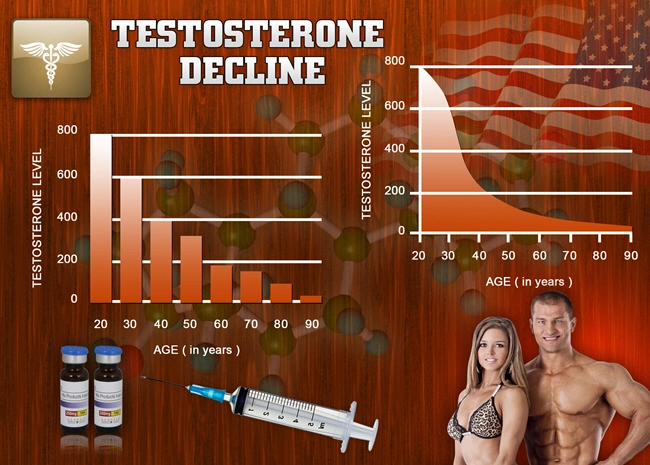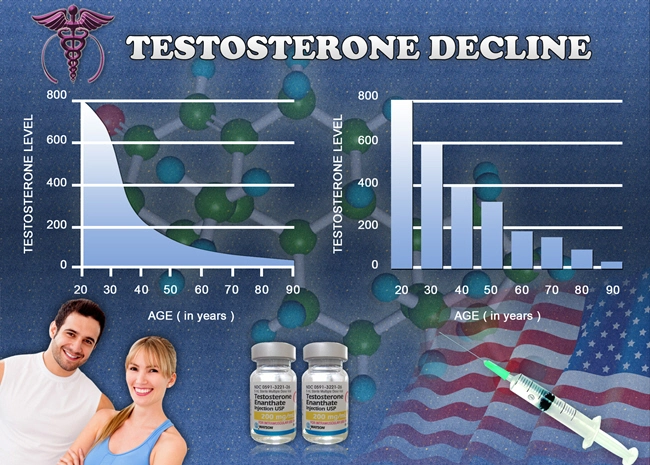
Video Link: https://vimeo.com/255869000
Video Download: Click Here To Download Video
Video Stream: Click Here To Stream Video
Ask any aging man... The effects of lowered testosterone levels that occur in an aging man's body are anything but pretty: weakened, flabby muscles, steady accumulation of ugly, toxin-laden fat, chronic fatigue, annoying joint pain...the hits just keep on coming. 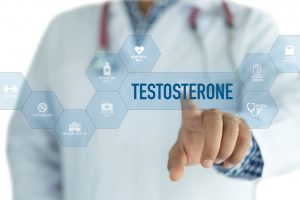
What's worse is that so many well-meaning “experts,” physicians included, continue to give their older patients that same old sad refrain..., "it's natural and happens to all of us...just get used to it” or some other meaningless platitudes that do nothing...absolutely nothing...to help stop the advance of these sad-sack symptoms.
But you can fight back with Testosterone Replacement Therapy (TRT).
If you haven't considered replenishing this hormone, perhaps it is time to consider doing just that.
In addition to regaining your strength, melting fat, delivering more energy, and living pain-free, there are other reasons to give TRT a whirl. Let's take a look at them...
Low Testosterone Levels (“Low-T”) are Not the Cause of Less Sex but its Result.
This is the conclusion from a new study conducted on a large group of older men in Australia.
It had been thought that low-T levels in elderly men lead to diminished libido.
However, a provocative new study from Australia found that a decrease in testosterone levels seems to result from lower libido, according to a report in Science Daily.
The study concluded that cutting down on your sexual activities with age may lead to lower levels of serum testosterone, a male sex hormone essential for sexual and reproductive development.
“In older men, decreased sexual activity and desire may be a cause, not an effect, of low circulating testosterone levels,” found lead study author Benjamin Hsu from the University of Sydney’s School of Public Health.
The research measured men who took part in the Concord Health and Aging in Men Project, a study of 1,705 Sydney researchers ages 70 or over.
The study was called “one of the world’s largest and most comprehensive study of the health of older men ever conducted anywhere in the world” by its organizers.
organizers.
The researchers tested the men for erectile dysfunction at baseline and again two years later.
During both visits, the participants answered questions about their sexual functions, including, “How much desire for sex do you have now, compared to when you were 50?”
Also, during both visits, the researchers measured the men’s serum testosterone, dihydrotestosterone (DHT), estradiol (E2), and estrone (E1).
In contrast, the decline in testosterone (but not in DHT, E2, or E1) over time, though less than 10 percent, was powerfully related to reduced sexual activity and desire, but not erectile dysfunction.
Over a two-year period, scientists found that baseline serum testosterone levels in men did not predict a decline in sexual activity or libido.
Unsurprisingly, a decrease in testosterone was strongly related to less sex and less desire.
Researchers behind the new report stress that it remains unclear what other age-related factors may be behind the reduction in testosterone levels.
But considering the “what came first, the chicken-or-the-egg” nature of the problem, little sex drive = Low-T, or the opposite, there are reasons...valid reasons...to take the results of this study into any man's decision-making process when it comes to TRT.
Low Testosterone Levels May Lead to Depression
Still another devastating effect of Low-T is the onset of depression.
Depression is the most common mental illness in the United States and is often dismissed as not being a severe affliction.
as not being a severe affliction.
This is wrong -- dead wrong.
Depression kills!
And recent research has concluded that men with borderline testosterone levels have higher rates of depression.
These results will be presented at ENDO 2015, the annual meeting of the Endocrine Society in San Diego.
"Over half of men referred for borderline testosterone levels have depression.
The recent study found that men seeking management for borderline testosterone have a very high rate of depression, depressive symptoms, obesity, and physical inactivity," said principal study author Michael S. Irwig, MD, FACE, associate professor of medicine and director of the Center for Andrology in the Division of Endocrinology at George Washington University in Washington, DC.
"Clinicians need to be aware of the clinical characteristics of this sample population and manage their comorbidities such as depression and obesity."
In the past few years, the number of men having their testosterone levels checked has skyrocketed.
 Studies of the possible connection between depression and serum testosterone show inconsistent results, and few studies have been published about adult men referred for the management of low testosterone.
Studies of the possible connection between depression and serum testosterone show inconsistent results, and few studies have been published about adult men referred for the management of low testosterone.
Dr. Irwig and his colleagues studied 200 adult men between 20 and 77 years of age whose testosterone levels were borderline (between 200 and 350 nanograms per deciliter).
The researchers were comprehensive and collected the men's demographic information, medical histories, medication use, and signs and symptoms of hypogonadism.
They remeasured the men's total testosterone and assessed depression from their medical history and depressive symptoms with the validated Patient Health Questionnaire 9 (PHQ-9).
Using a score of 10 or higher on the PHQ-9, 56% of the study participants had significant depressive symptoms, a known diagnosis of depression, and the use of an antidepressant.
Their rates of depressive symptoms compared to other primary care patients were startling: 56% vs. 15 to 22% in a group of ethnically diverse patients and 5.6% of overweight and obese US adults.
The population also had other symptoms of Low-T: a high percentage of obese subjects (39%), obesity (40%), and physical inactivity other than walking: 51% of the men did not engage in regular exercise.
The most common symptoms reported were erectile dysfunction (78%), low libido (69%), and low energy (52%).
"This study underscores the utility of a validated instrument to screen for depression, especially as some subjects may deny signs and symptoms during the interview. Appropriate referrals should be made for formal evaluation and treatment of depression," Dr. Irwig said.
Once again, the destructive effects of Low-T raise their ugly heads. Keep reading to discover another little-known benefit of testosterone replacement...
High Levels of Testosterone = Increased Honesty
That's right. According to a recent study conducted in Bonn, Germany, high testosterone levels not only make men braver, more aggressive, more muscular, more of a leader, and increases their sex drive -- they also make them more honest. 
In the study, scientists experimented with 91 male participants.
Of that group, 46 were given testosterone, and the rest of the participants received a placebo.
They were then tested by rolling a pair of dice with a sizable reward for those rolling a larger number.
The higher the number, the bigger the prize.
The men rolled the dice in separate rooms, and the game was purposely designed to give the subjects every opportunity to lie and cheat as they entered their data into a computer.
In other words, it was strictly done on the honor system.
The results were somewhat of a surprise.
According to one of the experiment organizers, men who received testosterone lied less than the placebo group.
The scientists explain that this may be due to increased positive self-esteem caused by a sense of pride, which increases a long with the hormone.
The final results of the study found liars have low testosterone levels in 75% of cases.
The discovery opens new possibilities for psychoanalysts and other scientists connected with this area of interest.
However, the scientists did not draw any firm conclusion and stated that more research was needed.
But perhaps this study speaks volumes about how testosterone makes a man more self-confident, with more self-esteem, and lessens the need to lie and take 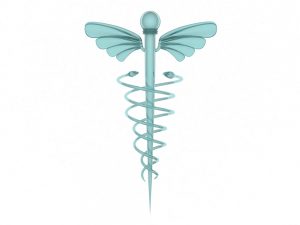 other shortcuts.
other shortcuts.
But What About the Risks of Testosterone Replacement Therapy?
It is indeed true that you can't turn on the television or the radio and not be bombarded with law firms advertising that if you or a loved one has suffered severe side effects due to testosterone treatments, call them at once.
Scary, for sure.
But do those fear-mongering rants have any basis in reality?
Or are they designed to line the pockets of suit-happy lawyers?
Perhaps they are overblown, based on the following evidence.
Early Studies See No Heart Risk from Testosterone Therapy
WEDNESDAY, March 4, 2015 (HealthDay News). Two new studies suggest that testosterone therapy doesn't seem to increase a man's risk of heart attack or stroke.
"Testosterone therapy in any form...gel, pills or injections...does not appear to cause adverse cardiovascular effects," said Dr. Pawan Patel, lead author of one of  the studies and an academic physician at Regions Hospital in St. Paul, Minn.
the studies and an academic physician at Regions Hospital in St. Paul, Minn.
Next week, the studies are to be presented at the American College of Cardiology (ACC) annual meeting in San Diego.
Research presented at medical meetings is typically viewed as preliminary until published in a peer-reviewed journal.
The timing of these studies was interesting.
They were released just one day after the U.S. Food and Drug Administration (FDA) issued a warning about the overuse of testosterone-boosting drugs by aging baby boomers trying to use the hormone to turn back the clock.
The FDA announced that they would require all prescription testosterone products to carry a warning label that cites a possible increased risk of heart attack and stroke, the agency announced.
Patel said that, based on his research, "the FDA black box warning may be premature. We certainly need a long-term clinical trial before we put a black box warning on testosterone therapy."
Testosterone levels begin to drop in a man at around the age of 30.
Testosterone replacement therapy is often used to treat the effects of low testosterone...the "low-T" cited in numerous ad campaigns.
IN A NEWS RELEASE, the ACC said that decreased testosterone levels could hurt mood, memory, muscle mass, bone density, and metabolism.
In the past five years, the use of testosterone replacement therapy has increased dramatically, from 1.3 million patients in 2009 to 2.3 million patients in 2013, according to the FDA.
Nearly one in 25 men over the age of 60 receive testosterone replacement therapy, the ACC said.
In its warning, the FDA reported that testosterone "is being used extensively in attempts to relieve symptoms in men who have low testosterone for no apparent reason other than aging.
The benefits and safety of this use have not been established."
The FDA noted that some previous studies have "reported an increased risk of heart attack, stroke or death associated with testosterone treatment, while others did not."
In 2013, a study of Veterans Administration patients revealed a 30 per cent increased risk of heart attacks and strokes among men taking testosterone therapy, said Dr. Richard Becker, chief of cardiovascular health and disease at the University of Cincinnati College of Medicine.
 "The risk was increased whether someone was known to have heart problems or not," said Becker, who's also director of the University of Cincinnati Heart, Lung and Vascular Institute.
"The risk was increased whether someone was known to have heart problems or not," said Becker, who's also director of the University of Cincinnati Heart, Lung and Vascular Institute.
However, many other doctors and medical researchers claimed the study was severely flawed.
It neglected to consider earlier studies that came to different conclusions.
Also, the fact that adverse side effects were mainly a result of over-prescription was not mentioned, nor was the debilitating condition of many of the participants.
Patel and his colleagues based their new findings on data from 29 previous studies on testosterone therapy, involving a total of nearly 123,000 men.
While the analysis revealed a 17 per cent increased risk of heart-related disease associated with testosterone replacement therapy, the risk was not statistically significant, according to the study's authors.
The second report was based on a community-based study from a Wisconsin health care system, in which researchers tracked health data from 7,245 men with low testosterone levels between 2011 and 2014.
The data came from the electronic health records kept by 15 hospitals and 150 clinics in the Aurora Health Care System. 
After adjusting for other risk factors, researchers found no difference in heart attack, stroke, and death among low-testosterone men who received testosterone replacement therapy and those who did not.
"The reassurance we get from this analysis in the community setting is that testosterone therapy in patients with low serum levels is not causing any harm, even if it is not providing much cardiovascular benefit [in this patient population]," study senior author Dr. Arshad Jahangir said in the ACC news release.
The findings "will help ease anxieties around this treatment and provide some information on which physicians can base their prescribing decisions," said Jahangir, director of the Center for Integrative Research on Cardiovascular Aging at Aurora Health Care.
The University of Cincinnati's Becker declared that neither study should be taken as definitive proof that TRT is safe.
For example, Patel's research did find an increased risk for heart-related disease, even though that risk was not statistically significant.
"Clinically, if 17 per cent increases your risk, that might be substantial," Becker said.
"There are also concerns that testosterone replacement therapy might speed the progression of prostate cancer in men," Becker said.
"Prostate tumors can feed on the male hormone testosterone," he said.
However, that idea had repeatedly been discredited and was based on flawed research in the early 1940s.
Dr. Abraham Morgantaler covered this topic in-depth in the December 2008 issue of Life Extension Magazine.
At this time, Becker said, TRT should be considered only for men displaying symptoms related to low testosterone levels.
He added that, even then, "the potential risks and benefits have to be weighed very, very carefully by a clinician."
Becker and Patel agreed that a large clinical trial is the only way to finally determine, once-and-for-all whether testosterone replacement therapy poses a risk to heart health.
"To get the best answer, we need long-term clinical trials to compare testosterone against placebo," Patel said.
Contact us for a FREE, no-obligation discussion of the benefits of Testosterone Replacement Therapy.
References
https://www.health.com/news/low-t-therapy-is-it-for-me
https://ses.library.usyd.edu.au/handle/2123/13823
https://www.huffingtonpost.com/2015/03/11/low-sex-drive-testosterone-older-men_n_6847228.html
Contact Us Today For A Free Consultation
Dear Patient,
Once you have completing the above contact form, for security purposes and confirmation, please confirm your information by calling us.
Please call now: 1-800-380-5339.
Welcoming You To Our Clinic, Professor Tom Henderson.

- LabCorp Announces a Change to the Testosterone Reference Range [Last Updated On: April 16th, 2025] [Originally Added On: June 23rd, 2019]
- Important Facts About Testosterone Therapy Before Buying [Last Updated On: April 18th, 2025] [Originally Added On: July 13th, 2019]
- Soy: Does it Lower Testosterone? [Last Updated On: October 18th, 2024] [Originally Added On: August 30th, 2020]
- Testosterone Treatments May Successfully Reverse Type-2 Diabetes in Some Men [Last Updated On: April 15th, 2025] [Originally Added On: November 13th, 2020]
- Testosterone Replacement Therapy (TRT) May Prevent Heart Attacks and Diabetes [Last Updated On: April 21st, 2025] [Originally Added On: November 17th, 2020]
- Did You Know? Recent Studies Have Confirmed the Link Between Low Testosterone (“Low-T”) and Depression. [Last Updated On: April 17th, 2025] [Originally Added On: January 10th, 2021]
- New Study Finds Testosterone Does Not Increase Your Heart Attack Risk [Last Updated On: April 14th, 2025] [Originally Added On: January 11th, 2021]
- The Great Testosterone Debate [Last Updated On: April 20th, 2025] [Originally Added On: January 14th, 2021]
- Testosterone Replacement Therapy Lowers Heart Attack Risk [Last Updated On: April 19th, 2025] [Originally Added On: January 18th, 2021]
- New Study Says: The Benefits of Testosterone Replacement Therapy Outweigh The Risks [Last Updated On: April 22nd, 2025] [Originally Added On: January 19th, 2021]
- Male Menopause. Fact or Fiction ? [Last Updated On: April 23rd, 2025] [Originally Added On: January 20th, 2021]
- Testosterone: How Much Do You Really Know About This Masculine Hormone? [Last Updated On: October 6th, 2024] [Originally Added On: February 9th, 2021]
- Low-T: What are healthy levels of Testosterone and why is it difficult to measure? [Last Updated On: September 11th, 2025] [Originally Added On: April 3rd, 2021]
- Testosterone Therapy May Be Good for the Heart if You Have Low-T [Last Updated On: May 3rd, 2025] [Originally Added On: July 21st, 2021]
- A Recent Study Concludes: Testosterone DOES NOT Cause Prostate Cancer [Last Updated On: September 14th, 2025] [Originally Added On: August 16th, 2021]
- In the Battle Against Aging, When do the Risks Outweigh the Rewards? [Last Updated On: April 4th, 2025] [Originally Added On: August 18th, 2021]
- New Study Concludes: Boosting Testosterone Levels Lowers Men's Death Risk [Last Updated On: May 11th, 2025] [Originally Added On: August 20th, 2021]
- Testosterone Replacement Therapy Slows Prostate Cancer! [Last Updated On: April 2nd, 2025] [Originally Added On: September 13th, 2021]
- Research proves that Testosterone Therapy Boosts Fertility! [Last Updated On: April 5th, 2025] [Originally Added On: September 26th, 2021]
- Free Testosterone and Sex Hormone-Binding Globulin [Last Updated On: April 6th, 2025] [Originally Added On: October 15th, 2021]
- Testosterone Does Not Cause Heart Attacks [Last Updated On: April 7th, 2025] [Originally Added On: October 15th, 2021]
- Testosterone and Women [Last Updated On: April 8th, 2025] [Originally Added On: October 15th, 2021]
- Testosterone and Metabolic Syndrome [Last Updated On: April 3rd, 2025] [Originally Added On: October 15th, 2021]
- Testosterone and Disease Prevention [Last Updated On: March 31st, 2025] [Originally Added On: October 15th, 2021]
- Judge Vacates $140 Million Verdict in Testosterone Lawsuit [Last Updated On: April 1st, 2025] [Originally Added On: October 15th, 2021]
- Testosterone and Estrogen [Last Updated On: April 9th, 2025] [Originally Added On: October 16th, 2021]
- Testosterone and Aging [Last Updated On: April 10th, 2025] [Originally Added On: October 16th, 2021]
- Testosterone Replacement Therapy (TRT) Benefits [Last Updated On: April 11th, 2025] [Originally Added On: October 16th, 2021]
- Testosterone and Male Menopause [Last Updated On: March 30th, 2025] [Originally Added On: October 16th, 2021]
- Testosterone Battles Obesity [Last Updated On: March 29th, 2025] [Originally Added On: October 16th, 2021]
- Testosterone FAQ's [Last Updated On: May 13th, 2025] [Originally Added On: October 25th, 2021]
- How Testosterone Impacts Sexual Preferences In Men and Women [Last Updated On: March 28th, 2025] [Originally Added On: October 30th, 2021]
- Growth Hormone and The Thyroid Gland [Last Updated On: April 24th, 2025] [Originally Added On: November 19th, 2021]
- How Does Masturbation Affect Testosterone Levels? Exploring the Science [Last Updated On: May 24th, 2025] [Originally Added On: March 27th, 2022]
- Testosterone Therapy Increasingly Used to Help Men Take Control of Aging [Last Updated On: May 25th, 2025] [Originally Added On: May 30th, 2022]
- The many benefits of Testosterone Replacement Therapy (TRT) [Last Updated On: November 1st, 2025] [Originally Added On: June 13th, 2022]
- Tlando Testosterone - A Brand New Way to Treat Low-T Safely with a Testosterone Pill [Last Updated On: May 28th, 2025] [Originally Added On: July 12th, 2022]
- Safe Tlando Testosterone Changes Landscape of Low-T Therapy [Last Updated On: May 30th, 2025] [Originally Added On: August 15th, 2022]
- Systems to Monitor Testosterone Replacement Therapy (TRT) [Last Updated On: October 12th, 2025] [Originally Added On: September 21st, 2022]
- Testosterone May Help You Keep Your Job (Or Find Another) [Last Updated On: June 12th, 2025] [Originally Added On: October 4th, 2022]
- Toxic Chemicals are Killing your testosterone…And your Manhood! [Last Updated On: October 28th, 2024] [Originally Added On: October 10th, 2022]
- A new study reveals that Testosterone improves body composition in men with low testosterone! [Last Updated On: October 22nd, 2025] [Originally Added On: October 17th, 2022]
- A former Mr. Olympia speaks about testosterone [Last Updated On: October 10th, 2025] [Originally Added On: November 8th, 2022]
- Testosterone Blockers Thwart Melanoma [Last Updated On: June 9th, 2025] [Originally Added On: December 11th, 2022]
